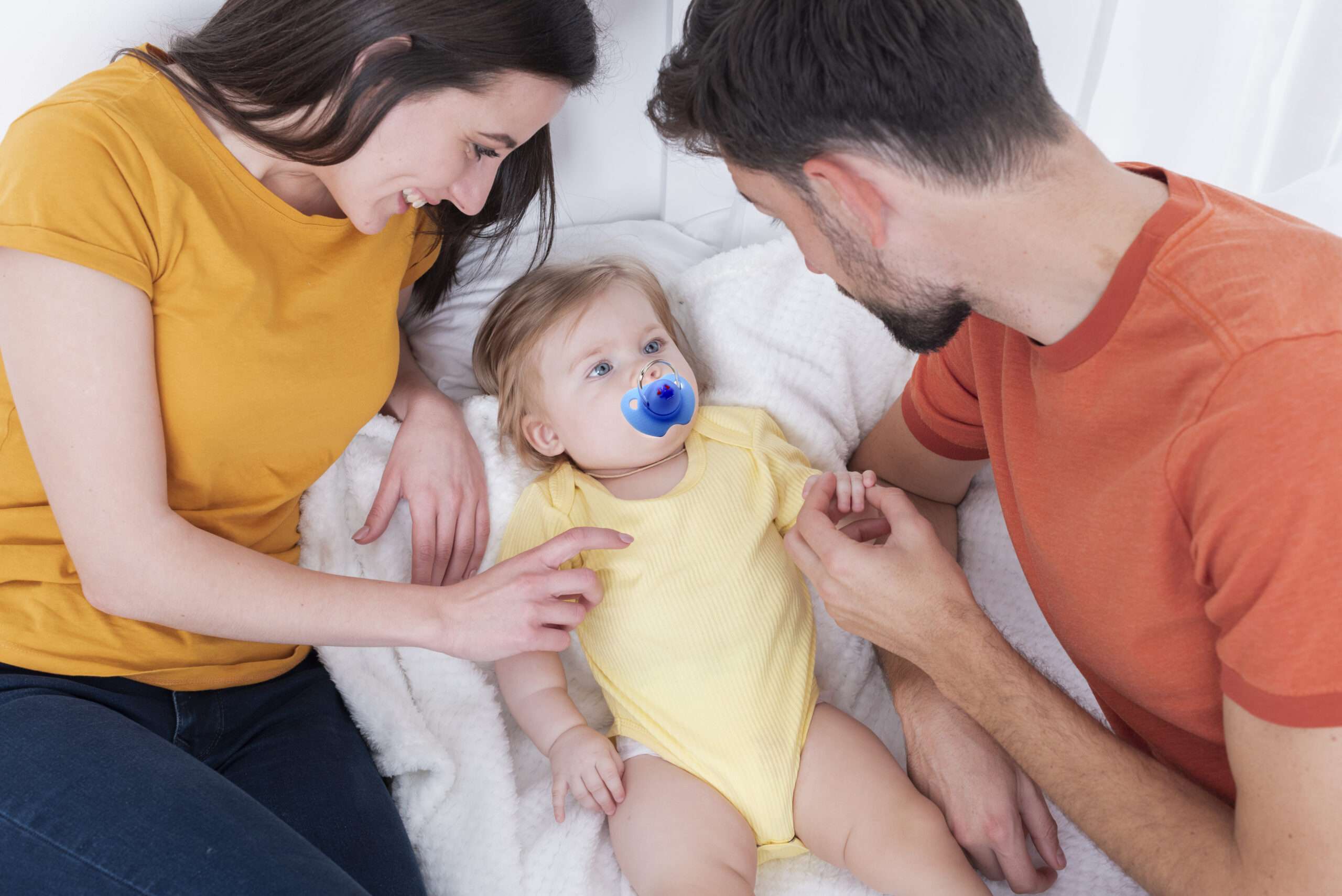A pacifier can be an amazing tool for some parents to calm and soothe their babies. However, there are many parents that don’t want to use it, or whose baby doesn’t like it. Or maybe your baby is now a 2+ year old toddler and you think it’s time to get rid of that pacifier!
Whatever the reason, if you are one of those parents, you are probably wondering what are pacifier alternatives you can give to your baby to stop all the fussiness. Well, you have come to the right place!
Pacifier alternatives for babies & toddlers
I find there are so many parents who want to avoid using pacifiers just because they think it’s not good for their baby when, in some situations, a pacifier can actually be a saving grace.

Advantages of Pacifiers
Comfort
A pacifier can offer comfort when a baby is crying or being very fussy, as the sucking helps babies soothe themselves.
Pain relief
As per the above, because the suckling action can help babies calm and soothe themselves, a pacifier can also help them cope with pain and discomfort, such as teething or when receiving a vaccination.
Sleep
Because the sucking comforts them, a pacifier can really help your baby fall asleep (or back to sleep!). This can come in quite handy when trying to remove breastfeeding as a sleep association during sleep training!
The American Academy of Pediatrics actually encourages the use of a pacifier when putting a baby down to sleep to help reduce the risk of SIDS.
Helps preterm babies
Studies have found that non-nutritive sucking, such as the use of a pacifier, can significantly decrease the length of hospital stay in preterm infants and can help with the transition from tube to bottle feeding.
Helps mothers with PPD with breastfeeding
According to a study from the Journal of Human Lactation, vulnerable moms who are at high risk of postpartum depression (PPD) do better with breastfeeding it their baby uses a pacifier. The self-soothing action of the pacifier gives mom a little more time between feedings, reducing stress.
Easier to stop than thumb sucking
Many parents (and the American Academy of Pediatric Dentistry) report that it’s easier to break the habit of sucking on a pacifier than it is to stop children from sucking on their thumb (or other fingers), as these are not part of a baby’s body.
How to Clean a Baby Pacifier
There are a few ways to clean a pacifier, but first, here are a few things you shouldn’t do. Don’t suck on the pacifier to clean it. This is a good way to spread germs to your baby, especially since so many illnesses are contagious before symptoms start to show. You should also avoid wiping it off on things like your pants, shirt, or tablecloth, as these could also carry germs.
Boiling. Boiling is a good way to sanitize your baby’s pacifier, but it doesn’t need to be done every time your baby drops it. You should boil the pacifier before your baby uses it for the first time and when the pacifier is really dirty. Things like pacifiers should be sanitized more regularly if your baby was born premature or has a weakened immune system.
Soap and water. Soap and water is usually the easiest, most effective way to clean up a pacifier. Use hot water and dish soap, and avoid anything heavily scented. Pacifiers should be cleaned if your baby drops it, but also after each use to avoid collecting germs.
Tips for Using a Pacifier Safely
- Knowing how to clean a pacifier is important for keeping your baby healthy. There are a few other things to know about pacifier safety as well:
- Check for cracks or tears before giving the pacifier to your baby.
- Don’t give your baby their pacifier immediately after giving them medicine, as some medicines can cause the pacifier to break down.
- Replace your baby’s pacifiers every two months.
- Don’t dip the pacifier in sugar or honey, as this is bad for your baby’s teeth and young children who ingest honey may be at risk for botulism.
- Do not tie a pacifier around your baby’s neck.
- Do not use a homemade pacifier.
- Don’t let your baby chew on the pacifier, as this makes it a choking hazard.












